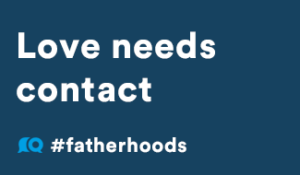Children returning to one parent after being with their other parent for a few days, can be one of the most challenging times for parents and children alike. For many parents who have experienced relationship breakdown, keeping the emotional fallout separate from their co- parenting responsibilities can be extremely difficult.
Whether conscious or unconsciously done, it is not only the words we use but body language and intonation that give children messages about whether its ok to be with their other parent.
The ex-couple relationship that exists post separation determines the creation, trust and on-going co-parenting relationship and whether the children have a smooth transition from nuclear family to separated co-parenting.
Below are some strategies for helping parents and children when transitioning between homes.
PARENTS
Try hard to make it ok for children to see their parent despite how you might feel about them.
Try to be enthusiastic about their time away without interrogation, on their return. If they don’t want to talk about it, that’s fine.
Remember your children, no matter how old they are, will only know and love you as mum and dad (mum and mum, dad and dad), they do not need details of why and how your relationship broke down. This causes them distress and put them under huge pressure to try and make each of you better.
Make sure that you are always ready and prompt for pick-ups and drop-offs, even if the other parent isn’t.
Be civil to the other parent, even if it is just to say hello, remember your children are conscious of what’s happening and will be adapting their behaviour accordingly. What you are showing them is how to treat men and women, and that despite your separation you can still be civil to the parent they love.
Children often make the connection that they are made of half of mum and half of dad, therefore if dad doesn’t like mum, does that mean dad doesn’t like them?
Thinking positive thoughts might seem an odd thing to do but research shows that if you think “everything is going to go well at this ‘drop off/pick up’ then often it will be.
Refuse to get into conversations with the other parent that might escalate during handovers, even if the other parent tries to. An argument can only happen when two people engage. Be assertive and perhaps say, “let’s talk about this later.”
If handovers are difficult at home, arranging them in public places can help. It’s hard to misbehave in public.
CHILDREN
Try to keep it calm at home prior to leaving/returning and think positive thoughts, it really does make a difference. If children ‘pick up’ the feeling from one parent that it’s not ok to see the other parent, they will either consciously or unconsciously change their thoughts and behaviour to make everything alright for the parent they are leaving behind. This sometimes might result in them saying they don’t want to go. That doesn’t mean, they don’t want to go. Let them know that you are going to be ok and that you have lots planned, children can feel guilty for leaving one parent behind, especially if they end up having fun with the other parent.
If you are driving to collect or ‘drop off’ be happy and enthusiastic about what’s coming, it allows them to really look forward to seeing their other parent.
When you arrive to collect your children, get out of the car and go to meet them, be on time, and try not to swap and change dates too often, this helps to build trust with your ex partner and the children.
Be fair when arranging timetables for week days with each parent and holidays including Christmas, Easter and birthdays. Children have an innate sense of fairness and they want to spend time with both parents.
If you feel out of your depth seek professional help from a therapist.
Other Resources
Recommended Books – we asked parents and professionals to recommend books they have used to support parents and children through separation.
Posted on March 26, 2020














